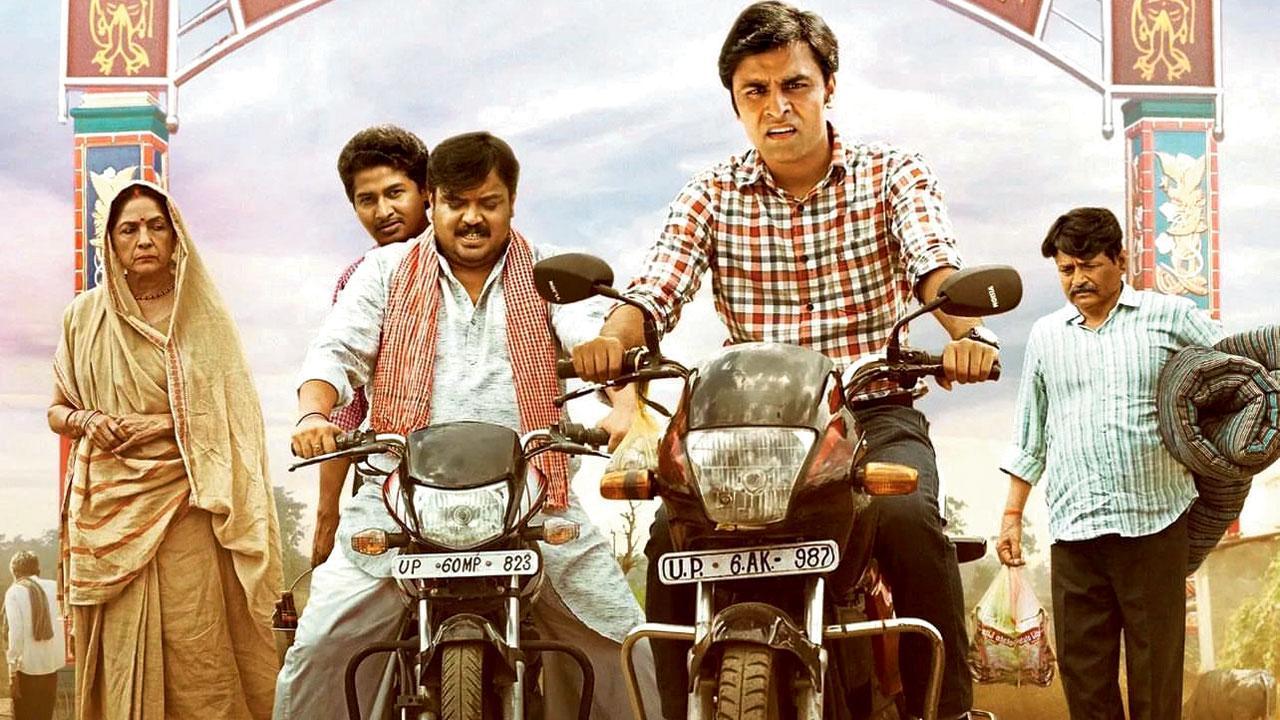Directors are confused and desperate for good music. But they don’t know how to introduce it in their film-Lalit Pandit
8:13 AM
Posted by Fenil Seta

Lalit Pandit brings the flavour of ’90s music to the third edition of the revered web show Panchayat with a track that features African percussion rhythms
Sonia Lulla (MID-DAY; June 2, 2024)
The third edition of the web series, Panchayat, which released on May 28, offered a throwback to ’90s music with Thame Dil Ko, a Lalit Pandit-composition that was rendered by Abhijeet Bhattacharya.
“The team wanted a melodious song along the lines of the numbers that I have created over the years in films like Yes Boss [1997]. They wanted a song that was reminiscent of the melodies of the ’90s, but one that had a boost of energy. It needed to be rhythmic and have [happy] notes,” says Pandit of the track in the Jitendra Kumar and Neena Gupta starrer.
Well aware that Bhattacharya excels at rendering the kind of number he was set to create, Pandit compelled the singer to break his “Bollywood hiatus” and return to the mic.
“We were happy to be working together again. He always takes my projects seriously and rehearses before coming into the studio. He has the baritone that is needed for this genre. He was worried, and told me that he hadn’t sung in a long time. But I encouraged him to join me.”
Alok Ranjha Jha’s lyrics, says Pandit, enabled him to create a composition that he was certain would appeal to listeners. In a bid to replicate the sonic quality of the ’90s, Pandit says the “programming and instrumentation” aligned with the flavour of the era.
“It has modern beats with a hint of African percussion rhythms. After a very long time, I used an instrument called the tumba, which creates a warm and rhythmic [melody]. While using percussion instruments, one can include nuances seamlessly, and that is something that a computer program cannot do, unless it is designed intricately. There are [segments] of the violin that I have used too, and they blend into the rest of the song beautifully. Because this was one man’s vision, the clarity of thought is evident,” he says, adding that a composer’s ability to create a song that the audience can sing along to is a winning quality.
Musicians of this day and age, he believes, are creating “very complicated tunes”. “More attention is paid to the production of the song than the composition and writing. That is why, today, the soundtrack of a film has only one or two songs that eventually become popular. The rest of the album doesn’t work. When Jatin and I were working together, the entire soundtrack of films like Fanaa [2006], Chalte Chalte [2003], and Dilwale Dulhania Le Jayenge [1995] became popular. The [desire to] create that kind of rich music is missing.”
Reiterating the popular notion that in Bollywood, “music makes the film and the artiste memorable in the long run”, Pandit asserts that artistic rights should remain in the hands of creative individuals.
“I blame the directors. They are confused and desperate for good music. But they don’t know how to introduce that into their film. They end up refusing good songs. If they feel a composer [hasn’t worked hard to create a complex number], they reject it. Then, a music director needs to start thinking from the film director’s point of view, and it is the latter’s choice that is given preference. This must change.”

This entry was posted on October 4, 2009 at 12:14 pm, and is filed under
Abhijeet Bhattacharya,
Alok Ranjha Jha,
Interviews,
Jatin Pandit,
Jatin-Lalit,
Lalit Pandit,
Lalit Pandit interview,
Panchayat
. Follow any responses to this post through RSS. You can leave a response, or trackback from your own site.
Subscribe to:
Post Comments (Atom)
Post a Comment